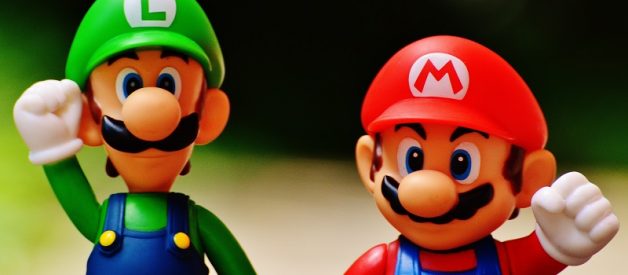Probably a lot of game lovers would like to be engaged in a process of game design. The popularity of the game designer profession is related to a “dreaminess” of it. A person, who has had ideas or game concepts spinning in his head since childhood, now has an opportunity to bring them all to life.
You might wonder how to get into this magical world? Especially if one does not have specialized education or experience. But in fact, it is not that hard: all you need is patience and time. And if you are ready to fully dedicate yourself to this profession, hard work will pay off with a lot of job offers.
But before you start searching for courses and books about game design, let’s find out what it takes to become a professional in this field.
1. Gaming experience
Professionals sometimes argue about the real importance of previous gaming experience in order to become a game designer. But most actually think that this experience very much needed. But note that you have to play not only those games you like. Select at least ten games of each genre and play them for reference, even if you are not that interested.
You should be familiar with the best projects on all major platforms: PC, mobile, social networks, consoles and preferably even virtual reality. The more diverse game experience you have, the better. You do not know what you may end up doing on your future job, so it’s better to get acquainted with as much as you can.

Gaming experience
2. Rich imagination
The thing is that a rich imagination implies a natural ability of a person to creative thinking and coming up with non-standard ideas. In order to have a rich imagination, you need to read classic literature, watch high-quality movies (and not only Hollywood ones), listen to a variety of music and be interested in different cultures. All of these actions will fill your subconscious with information, which later will turn into unexpected ideas and bold decisions.
Unfortunately, if you watch films only in movies and don’t like reading, your predisposition to game design is very low.
3. Logical thinking
You would think that a game designer has to think creatively, but it is not always the case. It is not enough to come up with an idea and then describe it on a paper. Before you will be able to bring your game concept to life, you need to defend it. You have to convince the team members and the project manager that this idea is exactly what the market needs. As a game designer, you will participate in a number of discussions with a variety of people. And in order to be the winner of these disputes, you need to train the logical thinking. It is logic that makes it possible to prove both the correctness of your idea and the erroneousness of your opponents’ proposals.

Logical thinking is a much-needed skill for a game designer
4. An ability to briefly express thoughts
Another very important skill of a future game designer is an ability to briefly and succinctly explain the essence of anything. Many beginners think that the more they write the better. They stretch an explanation for ten pages when it could have been written on just one. Think about the fact, that a lot of text is actually stealing the time of programmers and other people who work on the project. At the same time, this approach is reducing the effectiveness of your work.
The more accurate and concisely you will express ideas, the better. To do that, you need to be able to analyze what you have written and then structure it. Sometimes, instead of words, think about using charts, comparative tables or even screenshots.

Use brief notes and sketches to describe an idea
5. Follow the market
It is very important to follow the latest trends and news of the gaming industry. In order to come up with a game, that will be demanded and popular among users, you need to understand the general situation on the market. For example, if you still don’t know who Markus Persson is, go and google him right now.
6. An ability to analyze
Of course, in game design, as in any creative field, there are some unique and new elements. But for the most part, game design is a compilation of already existing ideas and mechanics. In other words, all game designers collect their design from the same (or similar) parts. And in order to understand which part will make your game original, you should be able to analyze other designs and see what makes them so good.
The ability to analyze can be and should be developed. You need to regularly think about factors that make the game good or bad and what distinguishes it from the rest. In fact, the ability to analyze and find problem spots in the gameplay is a key to creating a successful game.
7. Understanding the basics of directing
The basic principles of directing allow a game designer to understand the experience of the viewer (or in our case – the player). Unlike directing, game design is more complicated because a player has an ability to influence the events of the game. However, user’s perception and emotions are very much similar to those people experience watching a movie. With the help of dramaturgy, a game can provide emotional extremes.
Here is a quick example. Even an unpretentious arcade follows the rules of directing. It has an intro (setting), a level, which is a dramatic situation and a challenge, which is a move towards misfortune. The player overcomes difficulties by passing the levels, thus moving towards happiness. When the level is passed, the next part of the story occurs. The user receives a reward (coins or bonuses) and positive emotions. If the game concept is built correctly, passing the game will lead to catharsis, which is the main task of a dramaturgy.

Pac man – the classic arcade
8. Other useful skills
It is very useful (although not mandatory) if in addition to game design you have other skills. For example, you might know one of the programming languages or be acquainted with various software like Unity3D or Unreal. Even having basic knowledge in Photoshop is already a plus. All of this will allow you to understand the fellow developers much better by, for instance, sketching some characters. These skills will only make you a better game designer.


